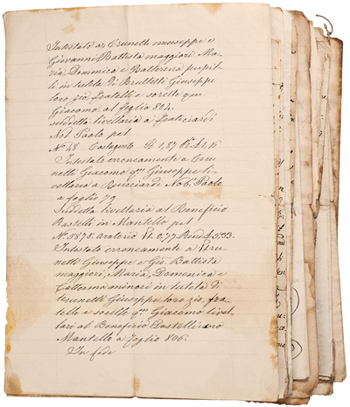
Handling and Preparing Digital Manuscripts and Sculptures
- Standard conservation techniques should be used for handling and cleansing fragile manuscripts or documents to increase the legibility of manuscripts.
- While scanning manuscripts, the filming platform should be made as per the instructions of a custodian scholar or under the guidance of an expert.
- Binding is not allowed to be taken out as it may damage the manuscripts. However, in some cases rebinding may be necessary, and the old binding should be removed by using sophisticated methods.
- Scanner operators should wear surgical gloves while handling manuscripts, as it can protect the delicate documents from damage.
- Soft bristled brushes should be used to wipe away the dust and dirt accumulated in the surface of manuscripts over the years.
Digitization Projects Happening Globally
Digitization projects are happening all around the world, and an example is one such initiative happening in India with a view to preserve ancient Konkani scriptures and manuscripts. Konkani is an Indo-Aryan language belonging to the Indo-European family of languages. A minority language, Konkani is the official language of the state of Goa in India, and is spoken along the western coast of India. With the aim to make available Konkani Scriptures and manuscripts for public access, the World Konkani Centre (WKC) in Mangalore and the Xavier Centre of Historical Research in Goa has signed a Memorandum of Understanding (MoU).
As per a recent report regarding this, the MoU is expected to speed up the process of digitizing over 80,000 documents housed at XCHR (Xavier Centre of Historical Research). The attempt will be immensely helpful for researchers and scholars, as they don’t have to travel all the way to Goa to capture data/information for their studies and can also save time and money.
The priceless collections available at the Xavier Centre of Historical Research include documents, records, manuscripts, newspapers, periodicals, paintings and artifacts. These documents encode a long history of Asia during the Portuguese presence in the East, Churches in Goa/India, Jesuits in Goa/India, and History of Indo-Portuguese Christian Art. There are around 400 water colour paintings of Indo-Portuguese Christian art created by the Goan painter Angelo da Fonesca.
The importance of the digitization of Konkani manuscripts lies in that the valuable 15th and 16th century documents that are fragile and brittle have to be preserved for future generations. In order to start the formal digitization process, WKC has now set up an exclusive digitization centre at XCHR.
The Xavier Centre of Historical Research can serve as a platform for scholarly research in Indian history and its rich cultural heritage with special emphasis on contemporary social and cultural issues. Earlier, the institute was meant for scholarly purposes only. Now with scanned and indexed documents, the authorities want to transform it to a social science library, which can be accessed freely by students of universities and colleges.
United States Support for Such Initiatives
The U.S. Ambassadors Fund for Cultural Preservation (AFCP) is supporting digital preservation projects happening across 100 developing countries of the world. These include evaluation and conservation of rare manuscripts and museum collections, documentation of indigenous languages and vanishing traditional craft techniques, restoration of ancient and historic buildings, and preservation and protection of important archeological sites.



